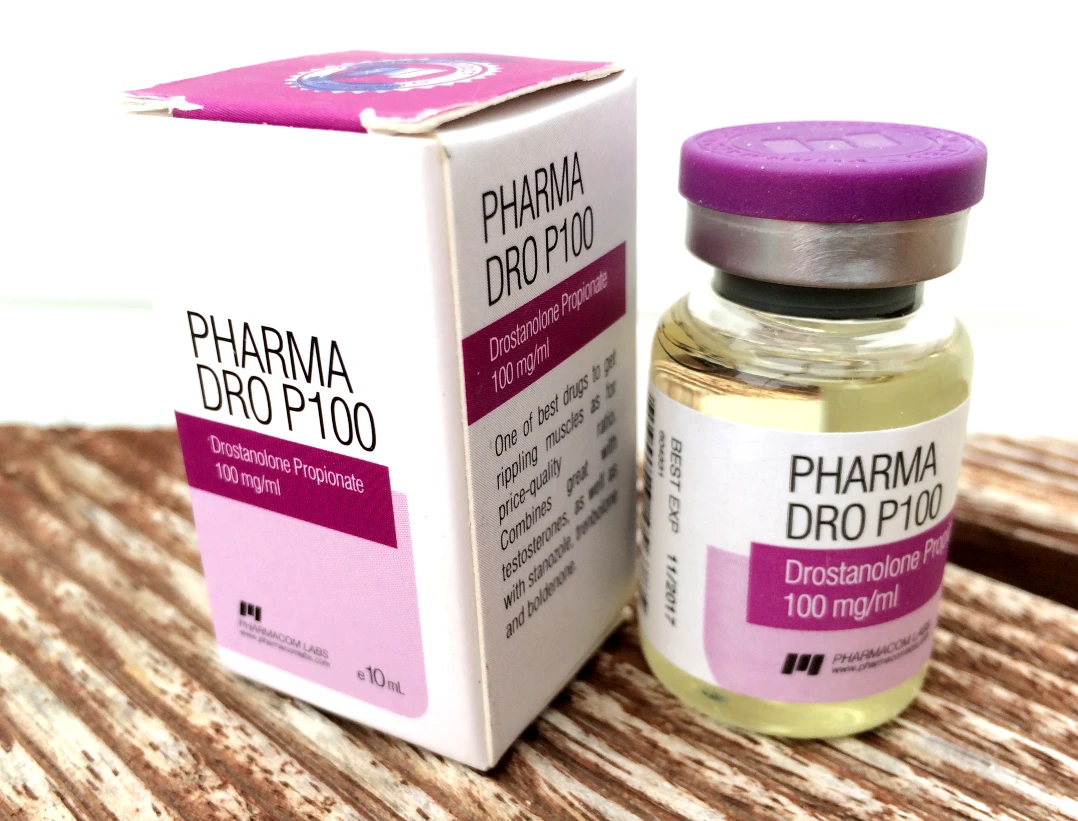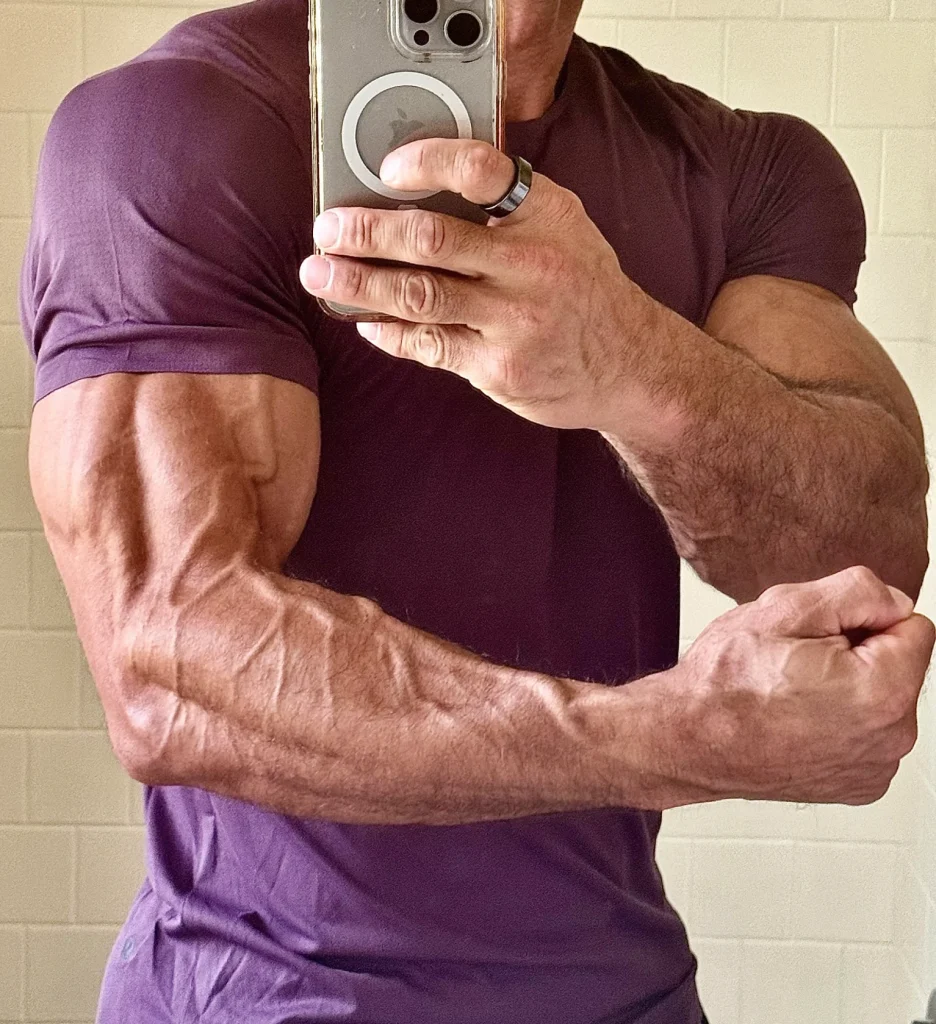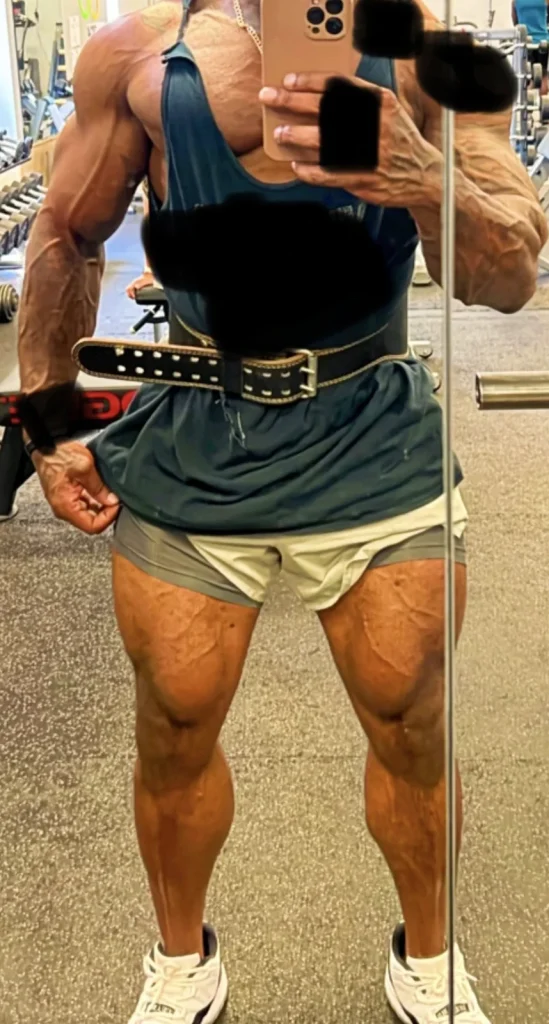
Masteron, also known as drostanolone, is a synthetic anabolic-androgenic steroid derived from dihydrotestosterone (DHT), originally developed for the treatment of breast cancer but later adopted in bodybuilding for its ability to enhance muscle definition and hardness.

You can explore this pharmacological profile further in the review Pharmacokinetics of Testosterone Esters in Men , which details metabolic pathways of non-aromatizable steroids.
Bodybuilders use Masteron primarily during pre-contest preparation phases to achieve a dry, chiseled appearance. However, many perceived benefits stem from anecdotal reports rather than clinical data.
| Benefit claim | Clinical evidence level | Likely contributing factors |
| Increased muscle hardness | Low (strong user reports) | Subcutaneous dryness, low water retention |
| Fat loss enhancement | Minimal direct evidence | Caloric deficit, training intensity |
| Vascularity improvement | Indirect correlation | Low body fat + enhanced definition |
| Strength gains | Not clinically documented | Mild AR activation only |
For deeper analysis, see the study titled Adverse Effects of Anabolic-Androgenic Steroids on the Cardiovascular System , which evaluates mechanisms behind aesthetic-focused compounds.
Masteron does not directly cause vascularity, but it creates optimal conditions for visible veins when combined with extremely low body fat and high intramuscular fullness.
Visible vascularity depends on several physiological factors:
Because Masteron reduces subcutaneous water and enhances muscular striations, users often report improved vein prominence in the final weeks before competition.
See the research Physiological Determinants of Visible Vascularity in Lean Athletes , which outlines hemodynamic and tissue changes necessary for pronounced vascular appearance.
Masteron is almost exclusively used in cutting cycles, typically during the final 8–12 weeks leading up to a physique competition.
According to findings published in Steroids Journal, drostanolone reaches stable plasma levels after consistent dosing, as detailed in Metabolism of Progestogens and Androgens , which includes discussion on DHT-derived agents.
Yes, Masteron exhibits anti-estrogenic properties, though not through aromatase inhibition.
Instead:
This makes it valuable in stacks where estrogen control is critical—even without using aromatase inhibitors (AIs).
Compare this action to selective estrogen receptor modulators (SERMs) like tamoxifen, discussed in Selective Estrogen Receptor Modulators: Mechanisms and Clinical Applications .
Despite being labeled “mild,” Masteron carries known risks common to all exogenous androgens.
As outlined in the Testosterone Therapy in Men With Hypogonadism: An Endocrine Society Clinical Practice Guideline , any exogenous androgen exposure suppresses natural testosterone production, regardless of estrogenic activity.
Many misconceptions persist about Masteron’s capabilities. Here are the most widespread myths, clarified:
Masteron is rarely used alone. It functions best as part of a synergistic stack designed for definition and hardness.
These patterns are widely discussed in community forums such as Powerlifting to Bodybuilding (P2B): Forum Discussion on Masteron Stacks .

Masteron use is concentrated among:
Note: The Endocrine Society clearly states that performance enhancement is not a valid indication for androgen therapy as defined in Diagnosis, Evaluation, and Treatment of Late-Onset Hypogonadism in Males .
While individual responses vary based on dosage, genetics, diet, and training, most users report gradual changes throughout a typical 8–12 week cutting cycle using Masteron (usually Drostanolone Propionate or Enanthate). Below is a generalized timeline reflecting commonly reported experiences within the bodybuilding community.
According to clinical observations in Androgen Receptor Signaling in Muscle and Adipose Tissue , DHT derivatives begin influencing cellular metabolism within days of administration.
This phase aligns with competitive peak week preparations, where enhanced definition is critical.
For more insight into hormonal recovery timelines, refer to Recovery of the Hypothalamic-Pituitary-Testicular Axis After Anabolic Steroid Use .
Understanding both medical perspectives and real-world user experiences helps paint a balanced picture of Masteron’s role in performance enhancement.
Discussions across platforms like r/steroids and AnabolicMinds reveal consistent themes:
These insights reinforce the importance of separating drug effects from overall lifestyle factors in physique development.
No, Masteron does not directly cause vascularity. However, by reducing subcutaneous water retention and enhancing muscle hardness, it helps create the dry, defined look that makes veins more visible—especially when body fat is already very low.
There is no scientific evidence that Masteron directly burns fat. Any fat loss observed during a cycle is likely due to diet, training, and overall caloric deficit. Its reputation stems from its ability to preserve lean mass while cutting, giving a more “shredded” appearance.
While some consider it “mild,” Masteron is not recommended for first-time steroid users. It suppresses natural testosterone production and requires proper post-cycle therapy (PCT). Beginners should prioritize understanding hormone health before considering any AAS.
Yes, especially in genetically predisposed individuals. As a DHT derivative, Masteron can accelerate male pattern baldness. Those concerned about hairline recession should monitor usage closely and consider preventative treatments like finasteride (off-label, consult physician).
Enanthate: Longer ester (~8–10-day half-life), injected twice weekly.
Generally, no AI is needed because Masteron does not aromatize. However, if stacked with testosterone or other aromatizable compounds, estrogen levels must still be managed appropriately.
| Aspect | Potential benefit | Associated Risks |
| Muscle Definition | Enhances hardness and dry look due to low water retention | No actual muscle growth benefit |
| Estrogen Control | Anti-estrogenic activity may reduce gynecomastia risk | Can disrupt hormonal balance even without aromatization |
| Strength & Performance | Minor improvements possible via androgen receptor stimulation | Not effective for significant strength gains |
| Cardiovascular Health | None proven | Reduces HDL (“good”) cholesterol; may impair endothelial function |
| Liver Impact | Non-C17aa structure = minimal hepatotoxicity | Still places metabolic stress on lipid profile |
| Endocrine System | Useful in cutting-phase stacks | Full HPTA suppression requiring PCT |
| User Experience | Favored for pre-contest refinement | Androgenic side effects (acne, hair loss, aggression) common |
For additional perspectives, visit discussions on The Steroid Forums or IronMag Bodybuilding Forums , where users share experiences under medical supervision disclaimers.
While Masteron does not build mass, its reputation for delivering a sharp, competition-ready look remains strong in bodybuilding circles.
Key takeaways: